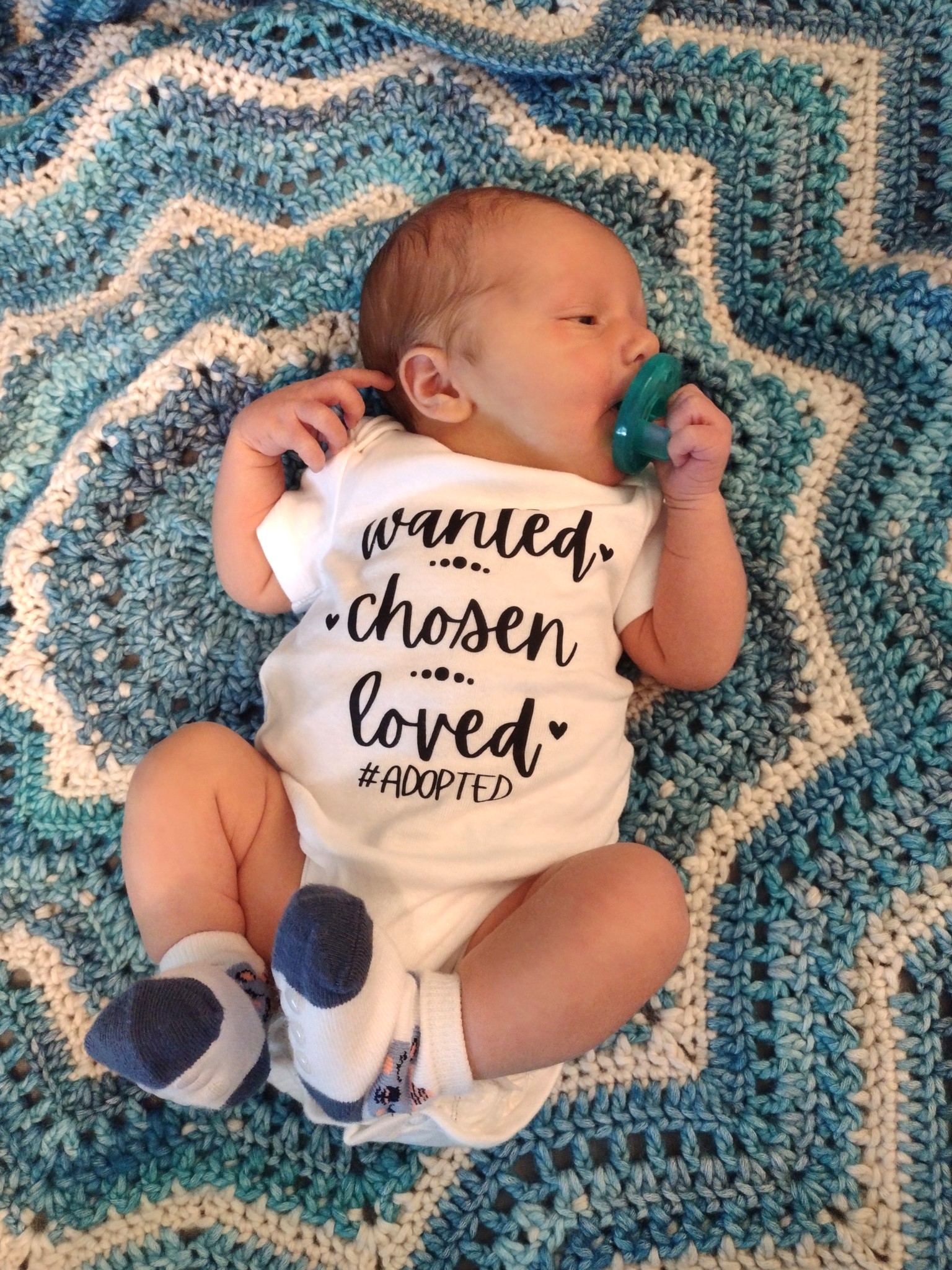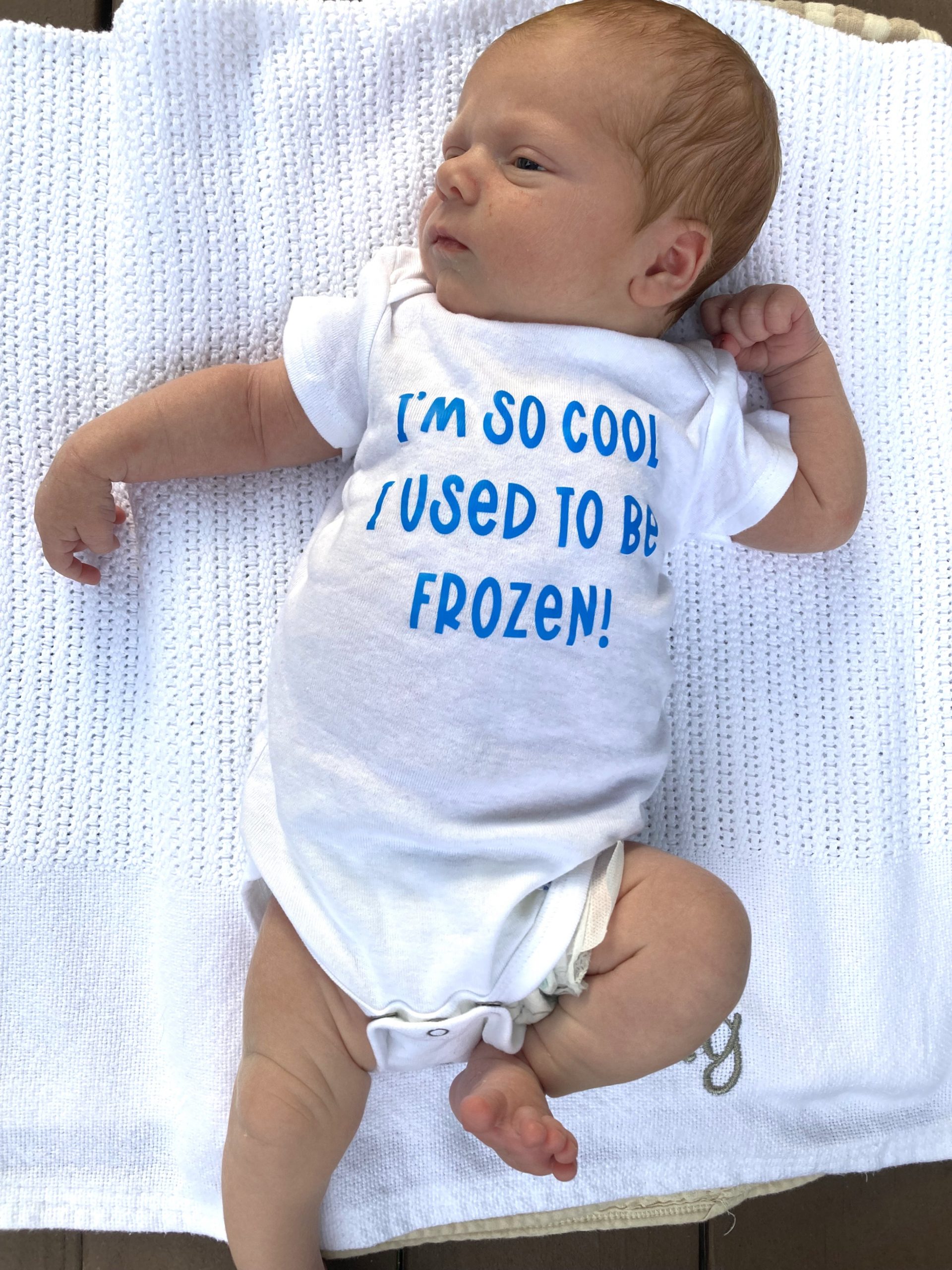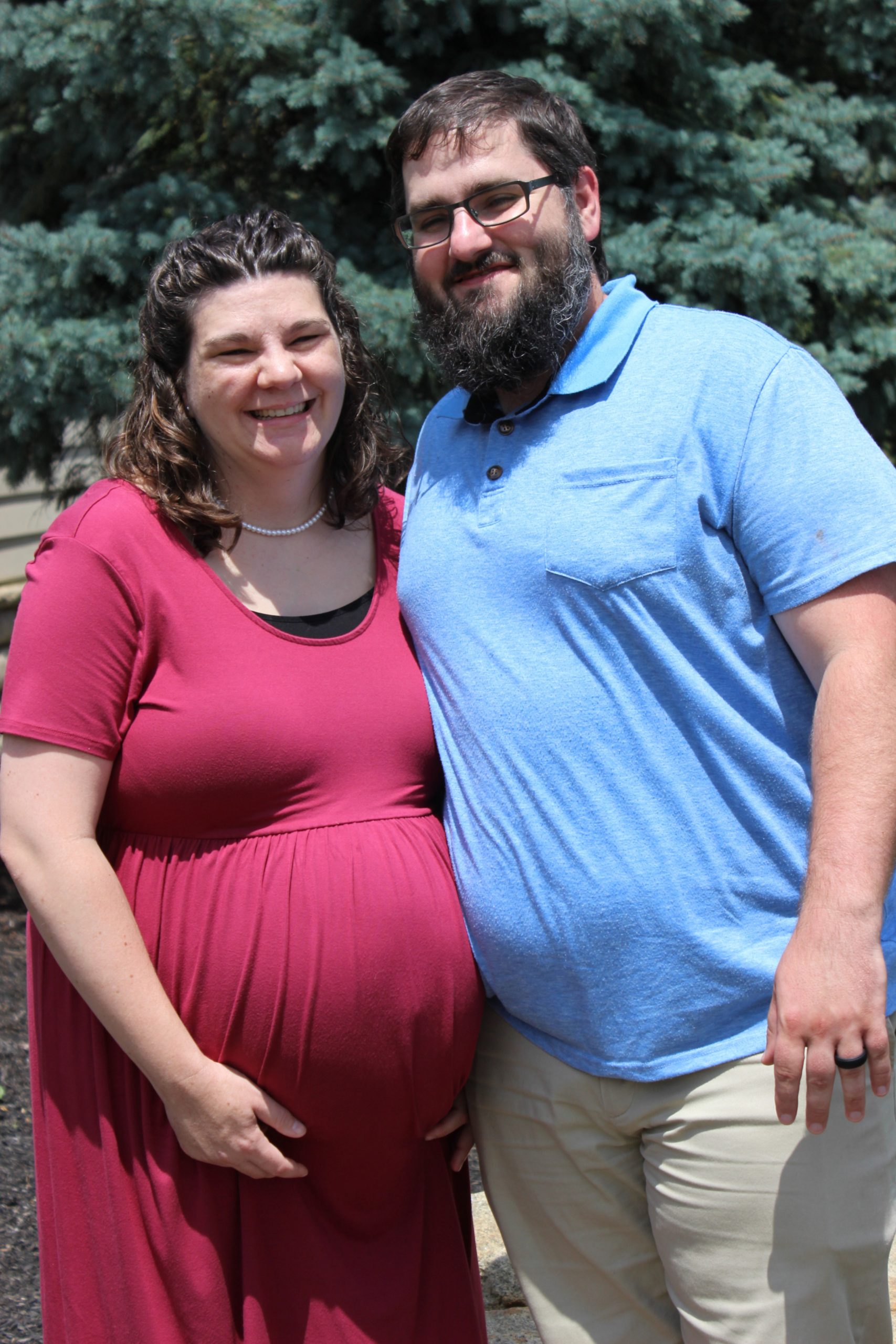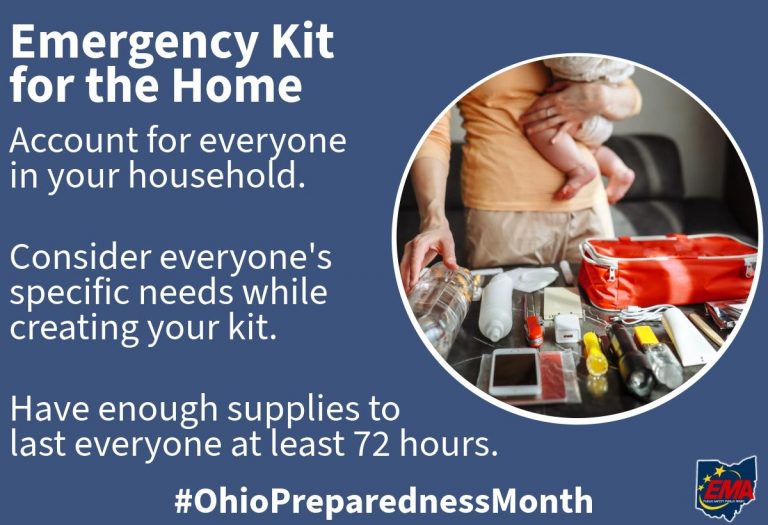London family’s ‘Miracle Baby’ brings global spotlight to embryo adoption
By Rachel Scofield
For Lindsey and Tim Pierce, the birth of their son Thaddeus Daniel Pierce on July 26 is nothing short of a miracle. But it’s also a world record.
According to MIT Technology Review, Thaddeus developed from an embryo that had been frozen since 1994 — more than 30 years — making him the longest-preserved embryo ever successfully brought to birth.
“We had a rough birth, but we are both doing well now,” Lindsey told the Review. “He is so chill. We are in awe that we have this precious baby!”
The Pierces, who live in London, met at a Bible study for young adults at Grove City Vineyard Church.
“I had just moved to the area,” Tim recalls. “She wasn’t looking to date anyone at the time. Eventually, we decided to try one date — and if it didn’t work out, we agreed we’d remain friends.”
It worked out. After getting married, they waited almost two years before trying to have children.
Eventually, they were diagnosed with unexplained infertility.
“We still wanted kids, so we started looking into adoption,” Tim said.
That search led them to Nightlight Christian Adoptions, where they first heard about embryo adoption.
Through Nightlight, they learned about the Open Hearts program, which focuses on embryos considered “hard to place” — often those that have been stored for many years and are less likely to be adopted.
“We decided to be open to any embryos,” Tim says. “That’s how we ended up matched with embryos that had been frozen since 1994.”
Older embryos like Thaddeus’s were preserved using freezing methods no longer in practice, and about 90 percent of clinics in the U.S. decline to transfer embryos stored using these older techniques.
But the Pierces’ beliefs didn’t waver.
“This didn’t change our belief that all life begins at conception and even the oldest embryo deserved a chance to be born,” Tim said.
The transfer took place at Rejoice Fertility in Knoxville, Tennessee — one of the few clinics willing to work with embryos regardless of age.
Rejoice was founded by Dr. John Gordon, a Reformed Presbyterian physician committed to reducing the backlog of unused embryos in storage.
His team works with multiple embryo adoption agencies and embraces a philosophy grounded in faith and patient care.
“We have certain guiding principles, and they’re coming from our faith,” Gordon explained. One of those principles: “Every embryo deserves a chance at life — and the only embryo that cannot result in a healthy baby is the embryo not given the opportunity to be transferred into a patient.”
That belief leads Rejoice Fertility to accept and attempt transfers with embryos that most clinics won’t touch — including those frozen decades ago.
In fact, Rejoice previously helped another couple, Rachel and Philip Ridgeway, deliver twins from 30-year-old embryos in 2022 — the former record holders before baby Thaddeus.
Now that baby Thaddeus has arrived, Christian Archerd, the woman for whom his embryo was created 30 years ago, says she’s overjoyed — and deeply moved by the connection she sees.
“The first thing that I noticed when Lindsey sent me his pictures is how much he looks like my daughter when she was a baby,” Archerd told MIT. “I wish that they didn’t live so far away from me – he is perfect!”
The couple is adjusting to the demands of new parenthood — and the unexpected limelight.
“The media attention is a little daunting,” Tim admits. “We’re trying to make a list of the interviews and outlets we’ve responded to.”
Reflecting on their journey, Tim shared that faith and hope carried them through.
“Our journey through all the pain of infertility is worth it knowing that Thaddeus was chosen for us by God,” he says. “Our friends and family have been praying for this little guy for so many years. Knowing this story is reaching so many people is enough to say that God is good, even in the bad.”
The Pierces owe a debt of gratitude to their Vineyard Church family who have assisted throughout the incredible journey.
“Many were supporting us with prayer, and when we were fundraising for the adoption, they helped us,” Tim said. “They are still supporting us today with meal trains and helping with errands.”
While the story has made international headlines – dubbing Thaddeus “the world’s oldest baby,” Tim admits the label feels a little odd. “It wouldn’t have been something that we would pick.”
However, he hopes that the media attention will encourage more families to adopt frozen embryos.
“Our advice for anyone entering the Snowflakes program is that it is all worth it,” Tim said. “You’re the one giving these snowflakes a chance to have a life.






